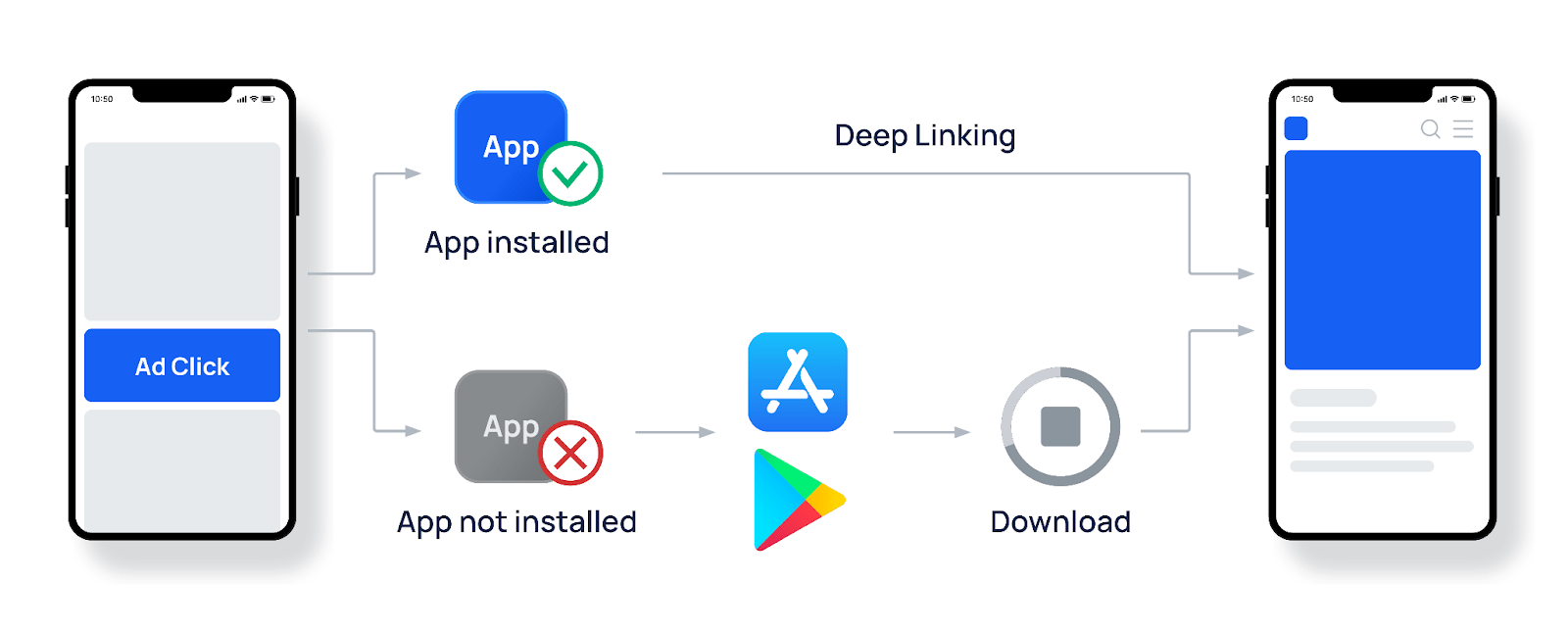Deep hot links play a crucial role in the way we navigate the internet today. They allow users to access specific content directly without having to go through the homepage or other intermediary pages. In essence, a deep hot link is a URL that points to a specific page within a website rather than just the homepage. This article will explore the concept of deep hot links, their significance, best practices for using them, and how they can impact your online presence. By the end of this guide, you will have a thorough understanding of deep hot links and their application in various contexts.
In an increasingly digital world, understanding the functionality of deep hot links can enhance your website's usability and improve user experience. These links can lead directly to products, articles, or even multimedia content, making it easier for users to find exactly what they are looking for. This not only aids in retention but can also lead to higher conversion rates for businesses. As we delve deeper into this topic, we will discuss the advantages, potential pitfalls, and strategies for effectively implementing deep hot links on your site.
This article is structured to provide a detailed overview of deep hot links, including their definition, benefits, and best practices. We will also look into the impact of deep hot linking on SEO and user experience, ensuring that you are well-equipped to leverage this powerful tool in your digital strategy. Let's embark on this journey to understand deep hot links better.
Table of Contents
- What Are Deep Hot Links?
- Benefits of Deep Hot Links
- Best Practices for Using Deep Hot Links
- Impact on SEO
- User Experience and Deep Hot Links
- Common Myths About Deep Hot Links
- Case Studies: Successful Use of Deep Hot Links
- Conclusion
What Are Deep Hot Links?
Deep hot links, often simply referred to as deep links, are URLs that lead directly to specific content on a website. Unlike regular links that may only direct users to the homepage or a general category page, deep hot links provide a more targeted approach. For instance, a deep hot link could take users directly to a product page, an article, or a specific section of a website.
How Deep Hot Links Work
When a user clicks on a deep hot link, they are taken directly to the desired content without having to navigate through multiple pages. This streamlines the user experience and can significantly reduce the time it takes for users to find what they are looking for. Deep hot links can be created by embedding the specific URL of the desired content within a hyperlink.
Examples of Deep Hot Links
- Linking directly to a blog post about "The Benefits of Deep Linking."
- Providing a link to a specific product page on an e-commerce website.
- Sharing a link to a particular section of an online course.
Benefits of Deep Hot Links
Utilizing deep hot links offers a variety of advantages, both for website owners and users. Here are some key benefits:
- Enhanced User Experience: By directing users to specific content, deep hot links reduce the time and effort needed to find information.
- Increased Engagement: Deep links can lead to higher engagement rates as they encourage users to explore more content on the site.
- Improved Conversion Rates: For e-commerce sites, deep hot links can lead directly to product pages, increasing the likelihood of purchases.
- Better SEO Benefits: Search engines may view deep links as indicators of valuable content, potentially improving rankings.
Best Practices for Using Deep Hot Links
To effectively implement deep hot links, consider the following best practices:
- Use Descriptive Anchor Text: Ensure that the anchor text clearly indicates the content users can expect to find.
- Avoid Broken Links: Regularly check deep links to ensure they lead to active pages.
- Limit the Number of Deep Links: Too many deep links on a single page can overwhelm users; use them judiciously.
- Maintain Consistency: Keep your website's structure organized to make deep linking more intuitive.
Impact on SEO
Deep hot links can significantly influence your site's search engine optimization (SEO). Here's how:
- Improved Crawlability: Deep links can help search engines discover and index more pages on your site, improving visibility.
- Increased Page Authority: Linking to specific content can distribute link equity more evenly across your site.
- Targeted Traffic: By directing users to relevant content, deep links can attract more targeted traffic, which can lead to better engagement metrics.
User Experience and Deep Hot Links
The user experience is paramount when it comes to web navigation. Deep hot links contribute positively by:
- Reducing Bounce Rates: Users are more likely to stay on your site if they can quickly find the content they need.
- Encouraging Exploration: Deep links can lead users to discover additional relevant content, enhancing their experience.
Common Myths About Deep Hot Links
There are several misconceptions surrounding deep hot links. Here are a few of the most common myths:
- Myth 1: Deep linking is illegal.
- Myth 2: Deep links hurt the original site's traffic.
- Myth 3: Deep linking is only for large websites.
Case Studies: Successful Use of Deep Hot Links
Many successful companies utilize deep hot links to enhance their online presence. For instance:
- Amazon: Uses deep links to lead directly to product pages, significantly increasing conversion rates.
- Medium: Encourages sharing articles via deep links, which boosts readership.
Conclusion
Deep hot links are an essential component of effective web navigation and can significantly enhance user experience. By understanding and implementing best practices for deep linking, you can improve engagement, boost SEO, and ultimately increase conversions. As you develop your digital strategy, consider the role that deep hot links can play in achieving your goals. If you have any questions or insights about deep hot links, feel free to leave a comment, share this article, or explore more of our content.
Call to Action
Don't forget to bookmark this article for future reference and share it with your peers to help them understand the importance of deep hot links!
Thank you for reading, and we hope to see you back on our site for more insightful content!


